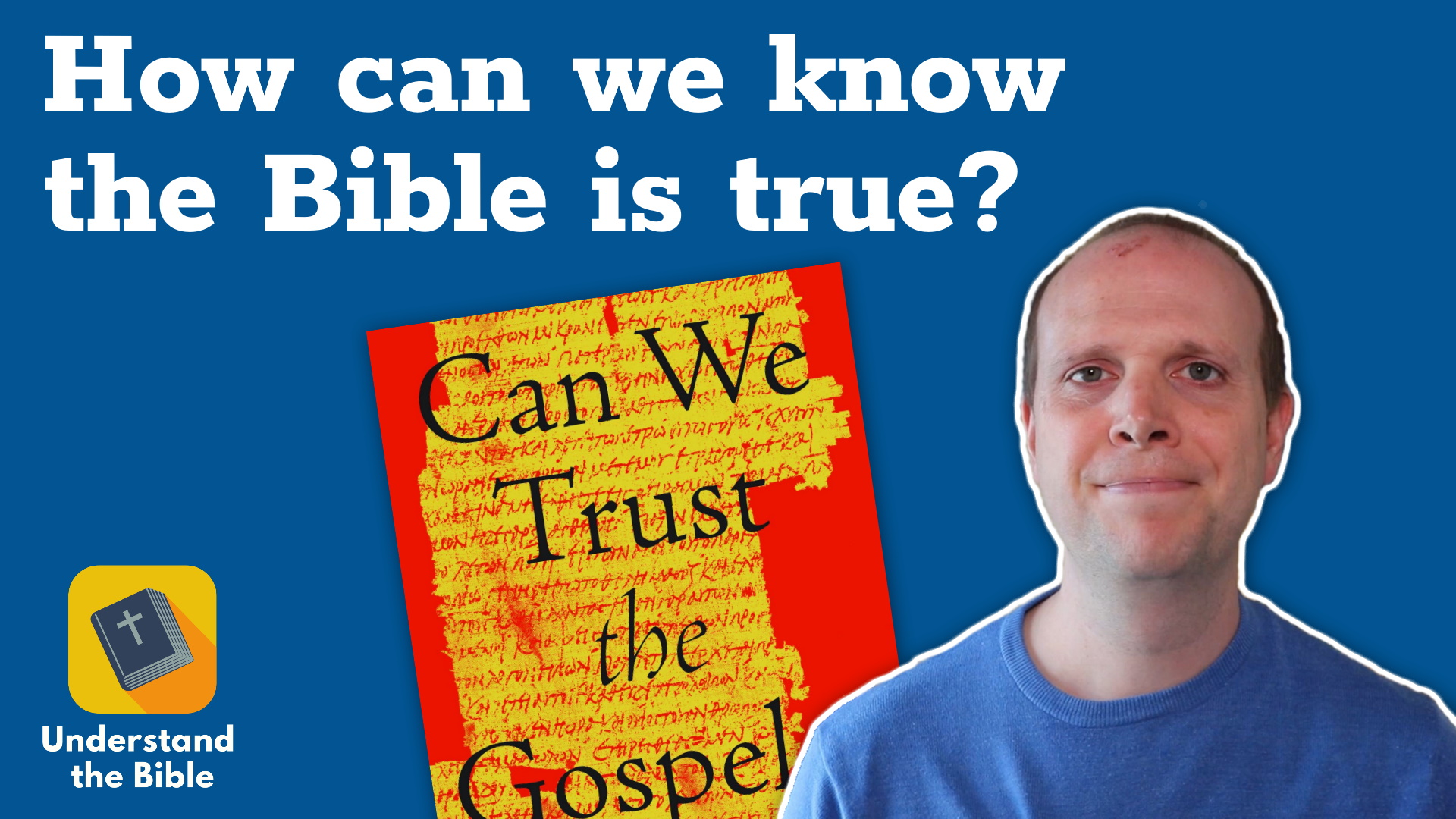One of the questions people often have is, how can we know the Bible is true? The Bible contains so much which seems strange to us. For one, it’s full of miracles. And the very centre of the story is based on Jesus – a man who performed many miracles and rose up from the grave. Can we trust that this is true, or is it more like one of Aesop’s fables?
This is a huge question and obviously in a short video we don’t have time to look at all the answers. In this video I focus on the gospels, drawing on Peter Williams’ brilliant book Can we Trust the Gospels?
Summary of the video
- The Bible centres on the life, death, and resurrection of Jesus – so if we can trust the gospels, we can almost certainly trust the rest of the Bible.
- Peter Williams’ book is the best book on the reliability of the gospels that I’ve ever read.
- He talks about a number of reasons why we can trust in the gospel as historically reliable. Here are just a couple:
- Geography. The gospels talk about a lot of places. All four gospels have unique place names which no other gospel mentions. Those place names range from large, common cities to local, relatively uncommon names. For someone to make this up, it would require research beyond anything we’ve ever seen from this time period!
- Undesigned coincidences. This is when a fact in one gospel is confirmed almost “accidentally” by another gospel. So, for example, Mark describes James and John as the ‘sons of thunder’. Luke doesn’t call them that, but he does record them wanting to call down fire on a village.
- He says that if it wasn’t for the miracles of Jesus, no serious historian would consider the gospels unreliable. So can we trust that the miracles are true?
- The miracles are not random – they occur within a whole picture which fits together. It would take a huge leap of faith to believe everything was fiction or happened by coincidence.
- The resurrection turns the disciples around. Through the gospels, the disciples are portrayed as misunderstanding lots of things, rarely getting anything right. What turned them into the group of men who evangelised the world? They would not have suffered and died as they did unless they knew it was true.
- The first witness of the resurrection was a woman. In those days, the testimony of a woman was inadmissible in court. No-one wanting to make up the story of the resurrection would make a woman be the first witness of the resurrection. It wouldn’t help the case at all.
- As Sherlock Holmes famously said: “When you have eliminated the impossible, whatever remains, however improbable, must be the truth”. It would take more faith to believe that the gospels were not true.
Your questions answered
This is the second video of a new feature called Your questions answered. (This particular video was originally recorded for my own church).
If you have a question about Christianity or the Bible, please send them in or comment below.

